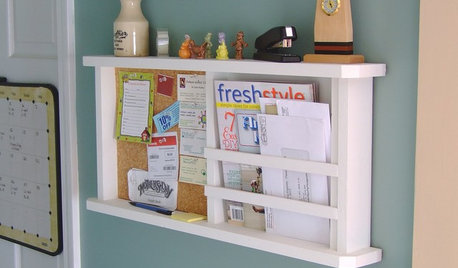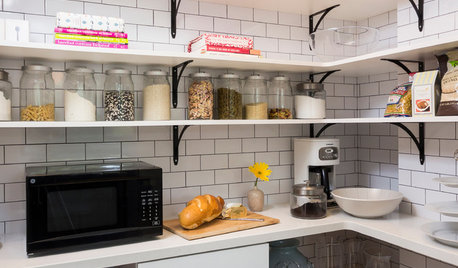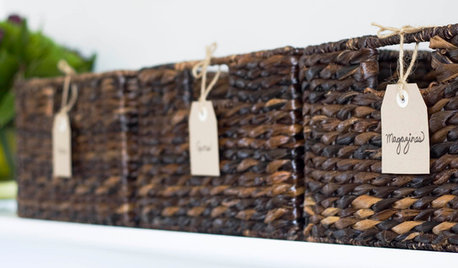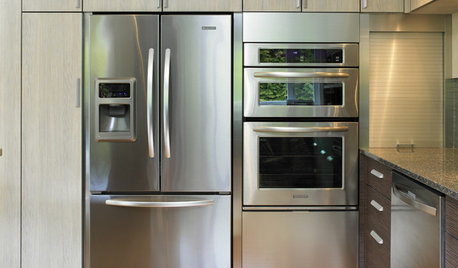couponing
deb_pa
12 years ago
Related Stories

DIY PROJECTSNeat Little Project: Build a Mail and Message Center
Centralize bills, notes and coupons with a wooden piece that's half cork, half shelving and all DIY-proud
Full Story
HOLIDAYS5 Gifts for the Home They'll Love — That Cost Next to Nothing
Print your own gift coupons: Offer your time and skill for presents your loved ones will really use
Full Story
FUN HOUZZHouzz Call: What’s on Your Refrigerator?
Magnets, menus, children’s art, coupons, perfect-attendance certificates, song lyrics — what is fridge-worthy in your house?
Full Story
FEEL-GOOD HOMESimple Pleasures: 10 Ideas for a Buy-Less Month
Save money without feeling pinched by taking advantage of free resources and your own ingenuity
Full Story
DECLUTTERINGHow to Declutter Without Going Minimalist
Here are 10 ways to get your home tidy and organized while keeping that personal touch
Full Story
ORGANIZING7-Day Plan: Get a Spotless, Beautifully Organized Kitchen
Our weeklong plan will help you get your kitchen spick-and-span from top to bottom
Full Story
ORGANIZINGGet Organized: Are You a Piler or a Filer?
Tote out the bins and baskets and learn how to be an organized piler if file cabinets leave you cringing
Full Story
LIFEA Savvy Shopper's Secrets to Sales
Kelly Hancock knows a good deal when she sees it. Here's how she saves up to 75 percent off everything
Full Story
THE HARDWORKING HOMEA New Drop Zone Keeps the Clutter at Bay
The Hardworking Home: A clever wall-mounted station for keys, phones and more helps a family stay organized
Full Story
ROOM OF THE DAYRoom of the Day: An 8-by-5-Foot Bathroom Gains Beauty and Space
Smart design details like niches and frameless glass help visually expand this average-size bathroom while adding character
Full StorySponsored



Adella Bedella
kassieleigh
Related Discussions
coupons coupons coupons!!
Q
Do Crate & Barrel coupons exist?
Q
In My Mailbox Tonight: Frame TV Coupon Code
Q
$25 first time order coupon
Q
LuAnn_in_PA
grainlady_ks